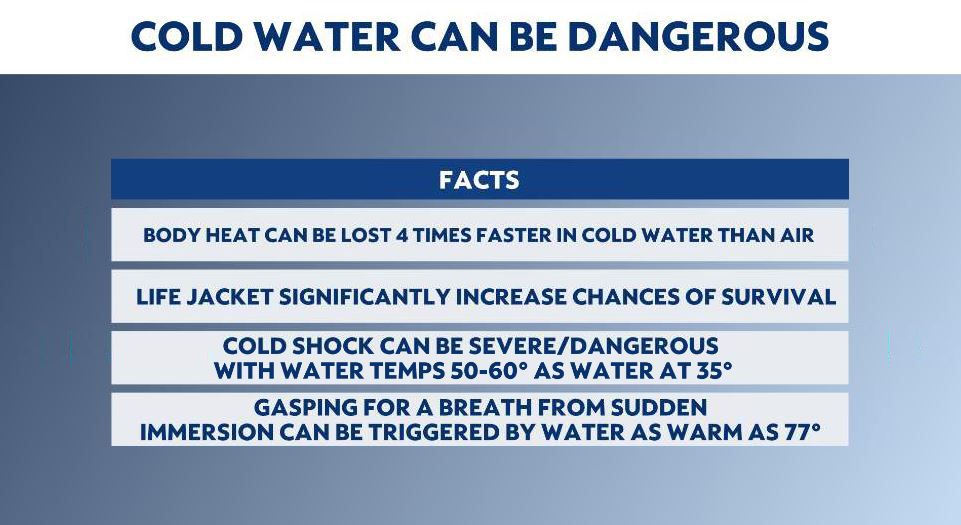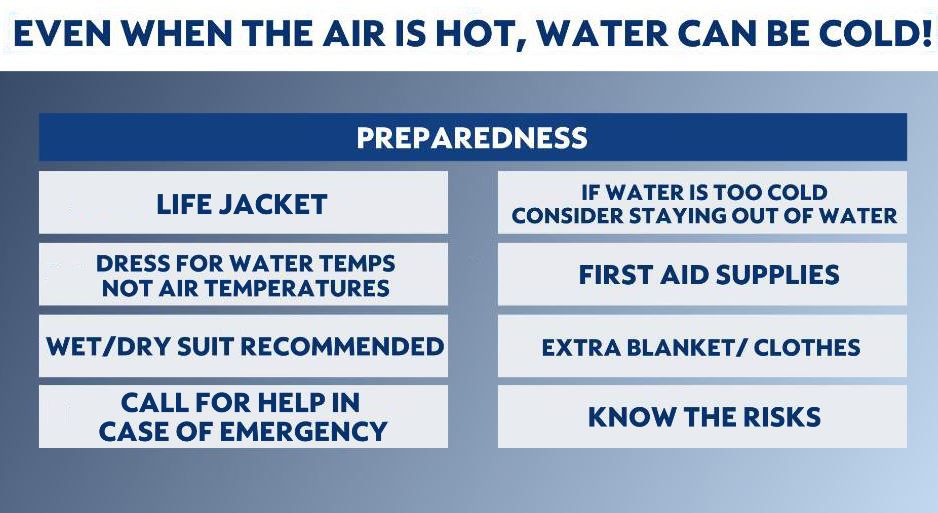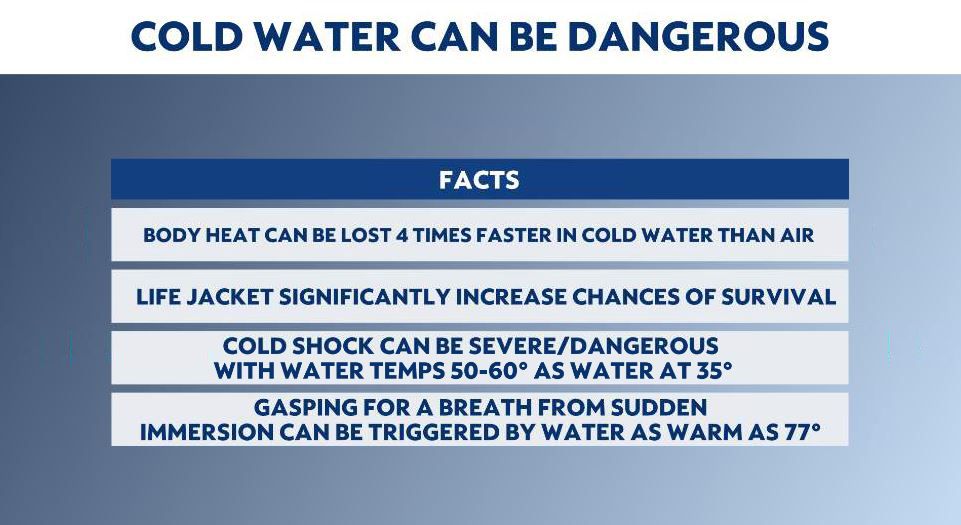Now that temperatures are warming up, who’s ready for the pool? Or how about the lake?! But before you plunge in, did you know that cold water can be dangerous?
Just because our air is warmer doesn’t mean our waters are just yet this early in the season, and there can be risks.
Let’s dive in!
Fifty-five-degree water may not sound freezing but it can be deadly, especially if you aren’t prepared. When jumping into colder water can be a sudden exposure for your body and brain and with warmer temperatures this time of year, it can create a false sense of security.
Being in cold water is a risk, and according to the National Weather Service, your body heat can drain up to 4 times faster than in cold air.
The ‘sudden’ shock of the cold water can quickly impact your breathing, your heart rate and your blood pressure enough so that it can be life-threatening. You are then at a greater risk of drowning.
Gasping for breath and a sudden spike in your heart/blood pressure can cause an immediate panic/stress for the swimmer which impairs clear thinking and decision making during a life-threatening situation.
Not only can a swimmer have a cold ‘shock’ but also develop hypothermia.
The onset of hypothermia begins once the body temperature drops to 95 degrees. And in a matter of minutes of immersion can lead a person’s body temperature to fall, thus increasing the risk of drowning or death.
Did you know?

Above is a list of facts about the dangers of cold water from the National Weather Service.
Always be prepared
The ability for a person to survive in cold water comes down to their ability to float. A lifejacket or floatation device is key and can keep you warmer.

Take action
To learn more from the US Coast Guard, check out the official guidelines to increase your chance of survival.




